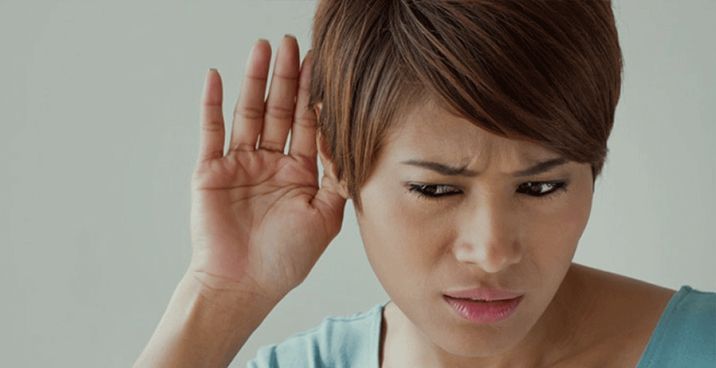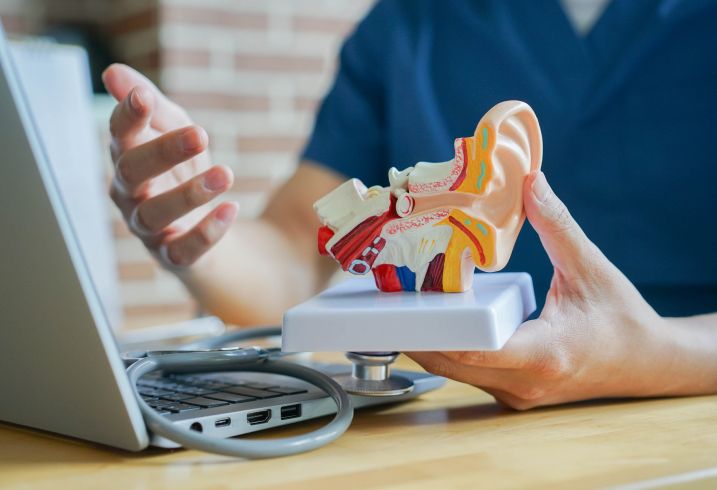Say That Again

One of the Five senses, hearing is an ability we cannot do without. Treat your ears well and you will be rewarded as you sail into the sunset years.
We should count ourselves lucky if we live long enough to become naturally deaf. The chances of becoming deaf if you live to a ripe old age is high, given that we start losing one decibel (or 1%) of our hearing per year after the age of 55. By the time we reach 110 we should be easily 90% deaf and that is provided we have good hearing during our younger days.
Not being able to hear, however, is no laughing matter. Hearing plays a vital role in effective communication and enables as to enjoy simple pleasures such as listening to music, and enjoying the sounds of nature and the laughter of grandchildren. Knowing how to take care of your ears will help you maintain your hearing into the golden years.
How Do We Hear?
Sound waves enter the ear, travel through the external ear canal and strike the eardrum, causing it to vibrate. The eardrum is connected to three small bones which move with the vibration. This movement is passed onto the cochlea. The cochlea is a fluid-filled structure that contains a receptor organ for hearing. This organ is made up of tiny nerve endings called hair cells. When the fluid in the cochlea moves with the vibration, the tiny hair cells translate this vibration into electrical impulses. The impulses are carried to the brain by the hearing nerves.
What Causes Hearing Loss?
Hearing loss can be traced to conductive hearing loss or sensorineural hearing loss.
Conductive hearing loss is caused by an inability of the ear to ‘conduct’ sound from the external ear to the cochlea. This may be caused by a blockage of the external ear canal, the eardrum or the middle ear. The blockage could be due to earwax, a ruptured eardrum, an infection of the external or middle ear, fluid in the middle ear (glue ear) or a disruption of the middle ear conducting bones.
Sensorineural hearing loss is caused by damage to the cochlea, the hearing nerves or the brain. The damage could be caused by viral infections (like rubella, mumps or measles), meningitis, noise-induced hearing loss, acoustic trauma, fracture of the temporal bone, ototoxic drugs or tumours. Noise-induced hearing loss occurs when one is exposed to a noise level above 85 decibels for a prolonged period (such as load music, construction sites, engine rooms etc). Acoustic trauma occurs when one is exposed to a sudden burst of extremely loud noise - such as a bomb going off nearby (the noise from this can reach up to 150 decibels). This loud sound send huge vibrations from the eardrum to the tiny hair cells in the cochlea, very much like a tsunami wiping off coconut trees along the coastal area and less so inland. Higher frequency nerve endings happen to be nearer the ‘coastal area’ of the cochlea and thus it is usually the higher frequency hearing that is most affected in such cases.
Treating Ear Problems
Conductive Hearing Loss
- Removing impacted ear wax
- Medical or surgical therapy for ear infections
- Draining the middle ear fluid
- Improving function of the Eustachian tubes (the tube between the eat and nose)
- Reconstruction of abnormal ear canals, the tiny bones in the ear or perforated ear drums
- Hearing devices and implants
Sensorineural Hearing Loss
Prevention is better than cure, as once the cochlea hair cells are damaged — which happens in sensorineural hearing loss — they are unlikely to recover. It is therefore important to protect ears from exposure to loud noise. Always protect your ears with ear plugs or ear muffs or both in noisy environments.
Couples with a family history of hearing loss are advised to seek genetic counselling before planning a family. Young children should also be immunised against mumps, measles and rubella. There should be no smoking, alcohol or certain drugs during pregnancy. If your child complains of hearing difficulty, they may have glue ear or otitis media - a condition that appears to be quite common, particularly among Caucasian, Japanese and Indian children. Take your child’s hearing complaints seriously and have their ears checked by an ear doctor.
Both adults and children should practice good ear hygiene. Digging the ears with cotton buds is a popular practice that should be avoided as it is both unnecessary (the ear canal is self-cleaning) and could cause damage (leading to infections, impacted ear wax or trauma to the ear drums).
Hear, hear!
If all else fails, hearing aids can come to the rescue. Today’s hearing aids are a marked improvement from those of the past, giving very good clarity and being virtually unnoticeable. Given that practically everyone these days goes around plugged into earphones, earbuds and Bluetooth hands-free sets, there is also less stigma about having a little hearing aid which can be barely visible or placed behind your ear. Hearing aids come in a range of colours and some are even waterpoof. Although inconspicuous hearing aids are more popular, I would advise the elderly to wear the more noticeable behind-the-ear hearing aids because they:
- are cheaper, the batteries last longer and they are less likely to get lost
- do not sit too deeply in the ear canal and therefore are less likely to cause impacted wax and ear infections
- they indicate to people that the wearer has hearing difficulties, resulting in speakers naturally talking more clearly, loudly and carefully for the hearer’s benefit
Using a hearing aid to address hearing loss is very important for children born deaf as the ability to hear is necessary for the development of the part of brain for hearing, speech and language. Hearing is also required for learning and communication. In fact, the importance of hearing cannot be overemphasised, as it is important for social, psychological and emotional reasons for both adults and children. If hearing loss is too severe to be helped by a hearing aid, a cochlear implant would have to be considered. Cochlear implants are inserted into the cochlea converting sound energy into electrical energy by a chain of electrodes laid along the damaged hair cells to be transmitted to the hearing nerve.
So do seek help if you, your child or elderly relatives are experiencing hearing difficulties.
Our Singapore ENT clinic specialises in the end-to-end management of all ear, nose, and throat conditions while keeping the best ENT practices in mind.









